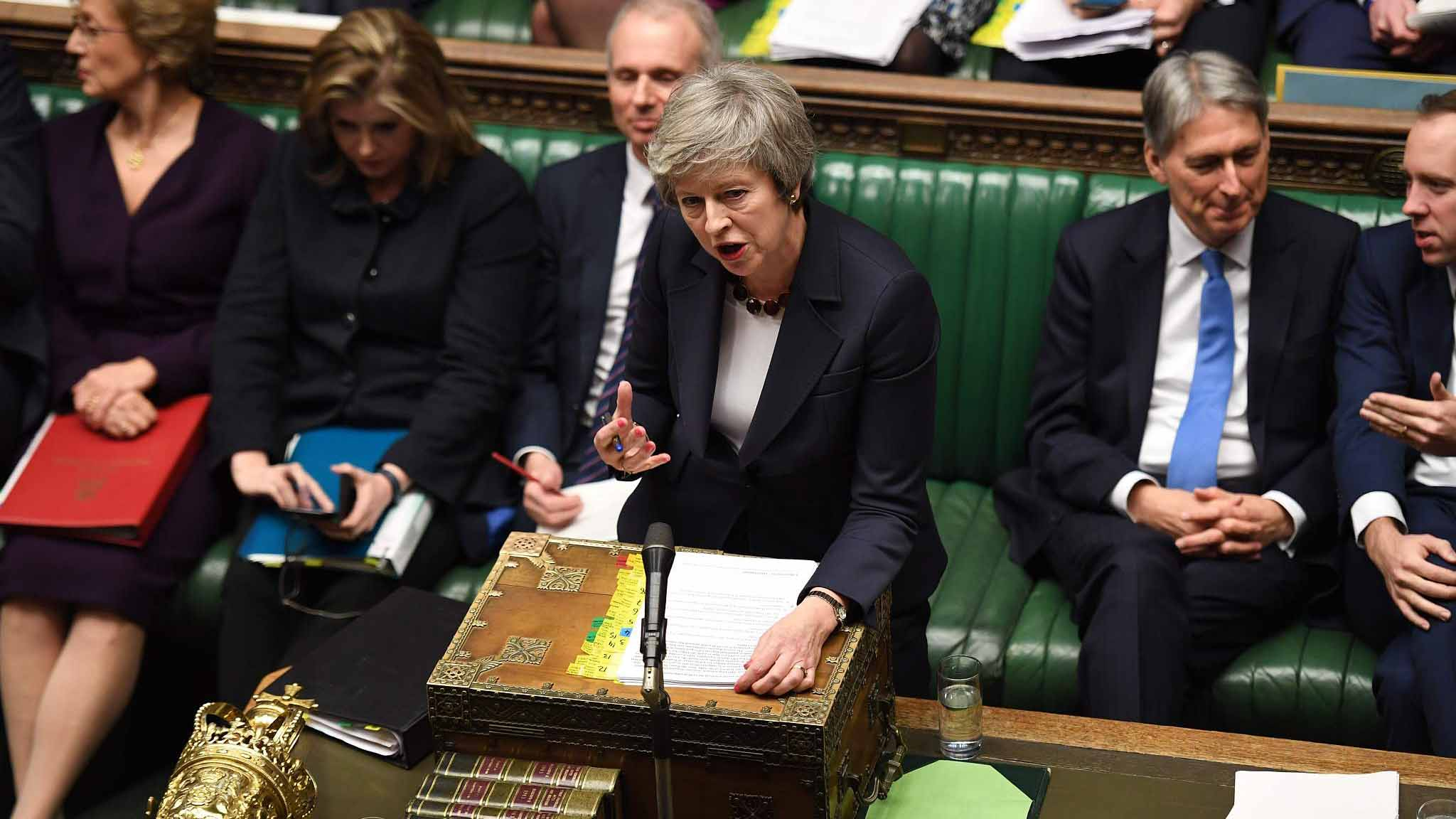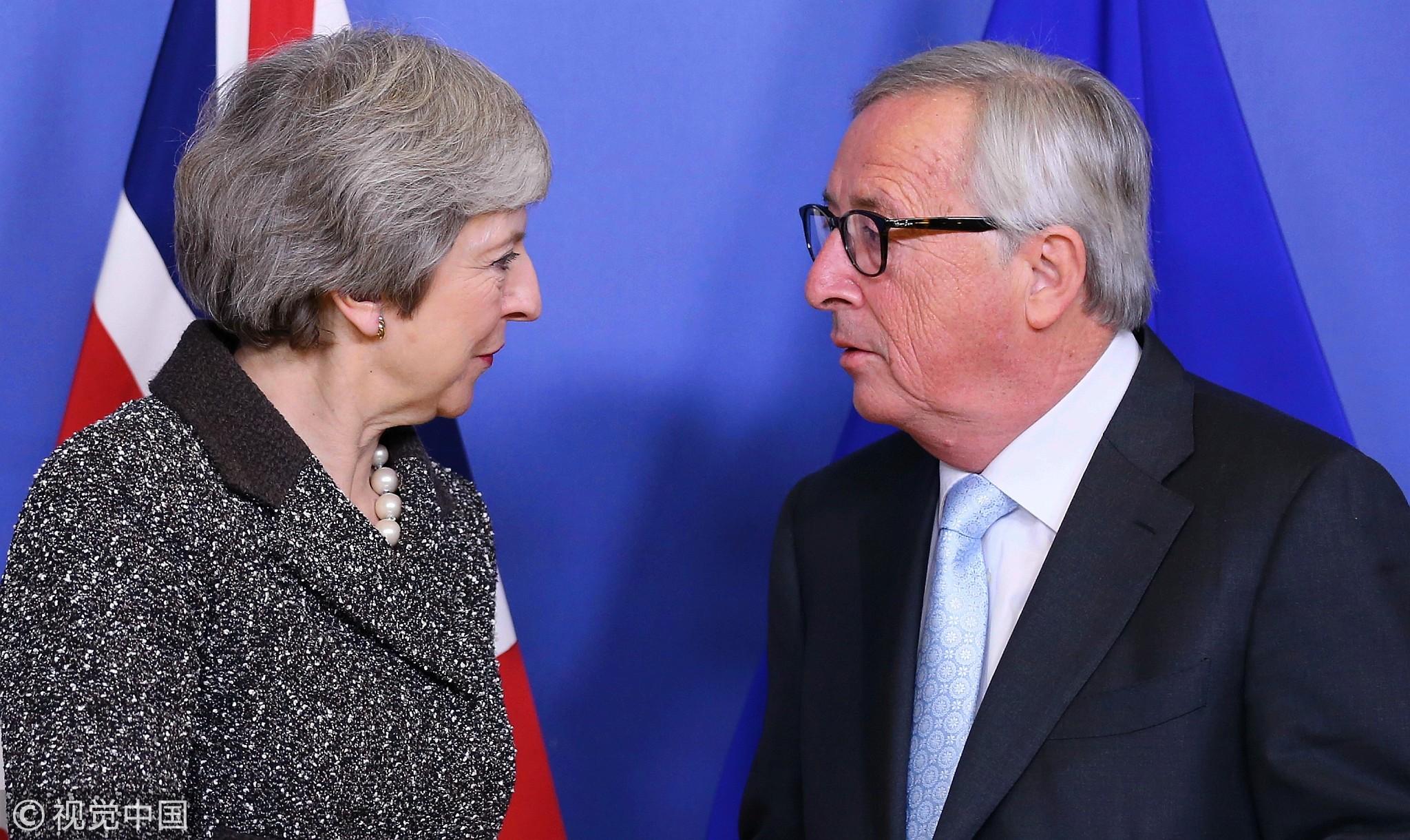
Politics
18:48, 15-Jan-2019
Lack of compromise threatens to put UK into uncharted territory
Updated
19:35, 17-Jan-2019
By Shang Jianglong, Nayan Seth
02:59

Who really wants what out of the Brexit issue, and why is UK Prime Minister Theresa May likely to lose her biggest political battle?
UK Labor Party leader Jeremy Corbyn said, “This is a botched deal."
Conservative MP Boris Johnson said, "I think that people will feel betrayed, I think they will feel that there has been a great conspiracy."
European Union (EU) Commission President Juncker said there wouldn't be renegotiations.
The UK prime minister is caught in a political crossfire. The parties who matter don't seem to agree on anything - a deadlock that threatens to plunge the UK into uncharted territory.
May believes her deal with the EU is the best agreement possible so the MPs should back her and accept it although she hasn't ruled out revoking or extending Article 50, the law that defines the process of Britain's exit from the European bloc.

President of the EU Jean-Claude Juncker (R) meets British Prime Minister Theresa May (L) in Brussels, Belgium on December 11, 2018. /VCG Photo
President of the EU Jean-Claude Juncker (R) meets British Prime Minister Theresa May (L) in Brussels, Belgium on December 11, 2018. /VCG Photo
Labour Party leader Corbyn said after defeating May's deal in Parliament, his party would bring a no-confidence motion, which would, in turn, lead to government collapse and fresh elections. He plans to win those elections and renegotiate the deal with the EU, but his own party isn't united on this strategy.
Many MPs believed that triggering a no-trust vote would deepen the political crisis and they would prefer a second referendum.
May's coalition ally, the Northern Irish Democratic Unionist Party (DUP), critical to the government's survival, opposes the deal. They say the Irish backstop clause is unacceptable.
May's conservative party is also deeply divided. Staunch Brexiteers said her deal is a partial divorce with the EU, and the EU would perpetually constrain the UK.
As all sides fail to find a middle ground, some experts believe May's defeat in Parliament is the most certain aspect of the issue.
Out of the total 650 MPs in Britain's House of Commons, May's proposal needs the support of at least 320 to sail through. Out of 315 Conservative members, around 100 oppose her deal.
May's ally, members of the DUP, are expected to vote against the proposal. But they have ruled out voting against May if the opposition brings a no-confidence motion.
The Labour Party, with its 257 MPs, is likely to reject May's deal as well. The remaining Scottish National Party (SNP) with 35 MPs, along with other smaller parties, are also not likely to offer any support.
Despite the PM's last-minute appeals, UK's parliament seems to have made a choice.

SITEMAP
Copyright © 2018 CGTN. Beijing ICP prepared NO.16065310-3
Copyright © 2018 CGTN. Beijing ICP prepared NO.16065310-3